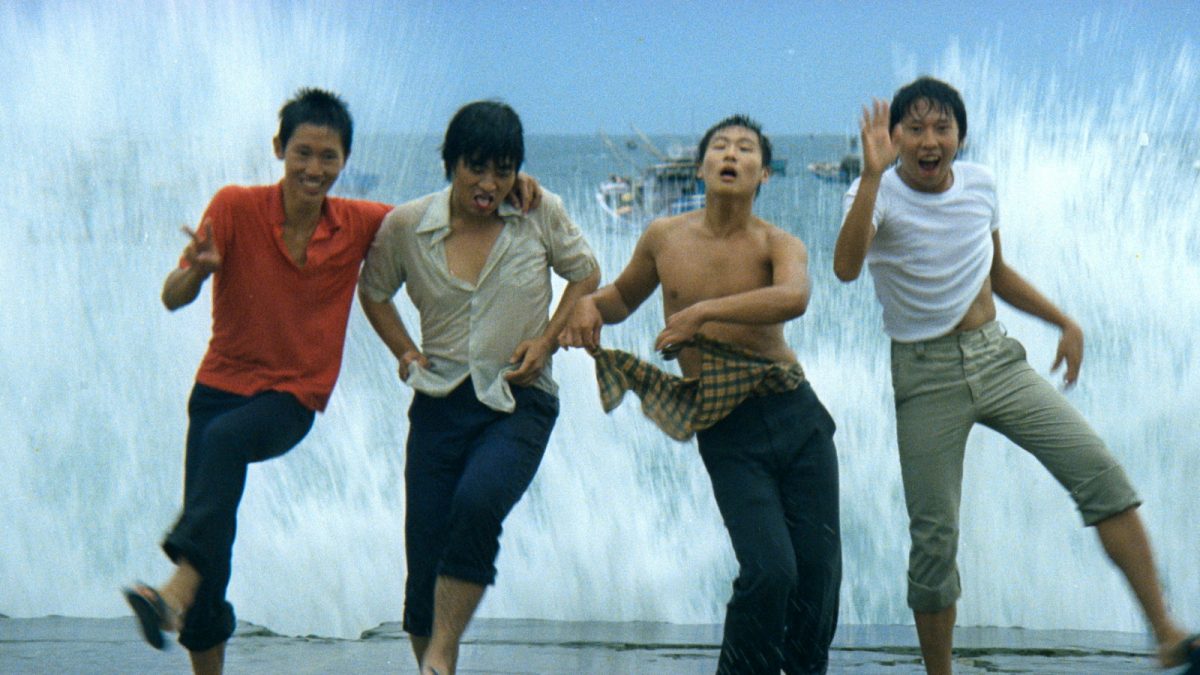The Boys from Fengkuei

The Boys from Fengkuei
Feng gui lai de ren
(All the Youthful Days)
Hsiao-Hsien Hou
Taiwan – 1983

Cast: Chun-fang Chang, Shih Chang, Doze Niu, Chao P’eng-chue, Chung-Hua Tou, Li-Yin Yang
Screenplay: T’ien-wen Chu
Cinematography: Kun-Hou Chen
Language: Mandarin, Min Nan
Duration: 101 min
Color: Color
Synopsis: Ah-Ching and his friends have just finished school in their island fishing village, and now spend most of their time drinking, fighting, and getting into trouble with the police. They play crude practical jokes, gamble, drink, fight, and chase girls as they wait for compulsory military service. The most introspective of the group, Ah-Ching lives in two worlds, the dissonant world of his buddies and the traditional culture that comes back to him in flashes of memory of his father when he was a young boy. Constantly berated by his mother for his lack of ambition, Ah-Ching and two friends leave their traditional home in Penghu to look for work in the Southern city of Kaohsiung. On the surface, the boys are street-wise, but beneath their swagger, their naiveté is apparent. Ah-Ching’s sister offers the boys an apartment and they find jobs in a local factory, but an infatuation with a hoodlum’s girlfriend leaves Ah-Ching more alone than when he came to the city.
Notes:
The idea of history as a fluid relationship between past and present has been a constant throughout Hou’s films. Certainly this is the case with his period films: the ‘Taiwan trilogy’ of A City Of Sadness (1989), The Puppetmaster (1993) and Good Men, Good Women (1995); or Flowers Of Shanghai (1998), stunningly set in a 19th century brothel. In these films Hou brings the past stunningly back to life by immersing us in the sensations of its moments. But looking at his films set in contemporary Taiwan, the opposite effect seems to occur: there’s a sense of experiencing the present as if filtered through contemplative memory. A look at The Boys from Fengkuei presents an opportunity to explain the uniqueness with which he imagines the present.
The emphasis is placed first and foremost on the moment, on sound, image, positions, gestures and sensations. Hou’s manner of storytelling has a disorienting effect for the viewer, if only to reorient them squarely in a way of viewing that prioritises the unmitigated experience of the moment above narrative preoccupations. Much of this recalls Ozu, and indeed Hou has been compared more often to Ozu than to any other filmmaker – the wordless establishing shots that open the film would seem an obvious tribute to Hou’s predecessor were it not true that Hou had never heard of Ozu until late in the 1980s. Uncharacteristically, in The Boys from Fengkuei Hou uses a liberal use of classical music in this film, which seems clichéd by Western ‘serious movie’ standards but in a Taiwanese context may help distance the viewer from the story in a way that aids Hou’s purpose of contemplating and commemorating the way of life depicted on-screen.
Excerpt from Lee, Kevin. “The Boys from Fengkuei .” Senses Of Cinema: An Online Film Journal Devoted To The Serious And Eclectic Discussion Of Cinema 26, (May 2003)


